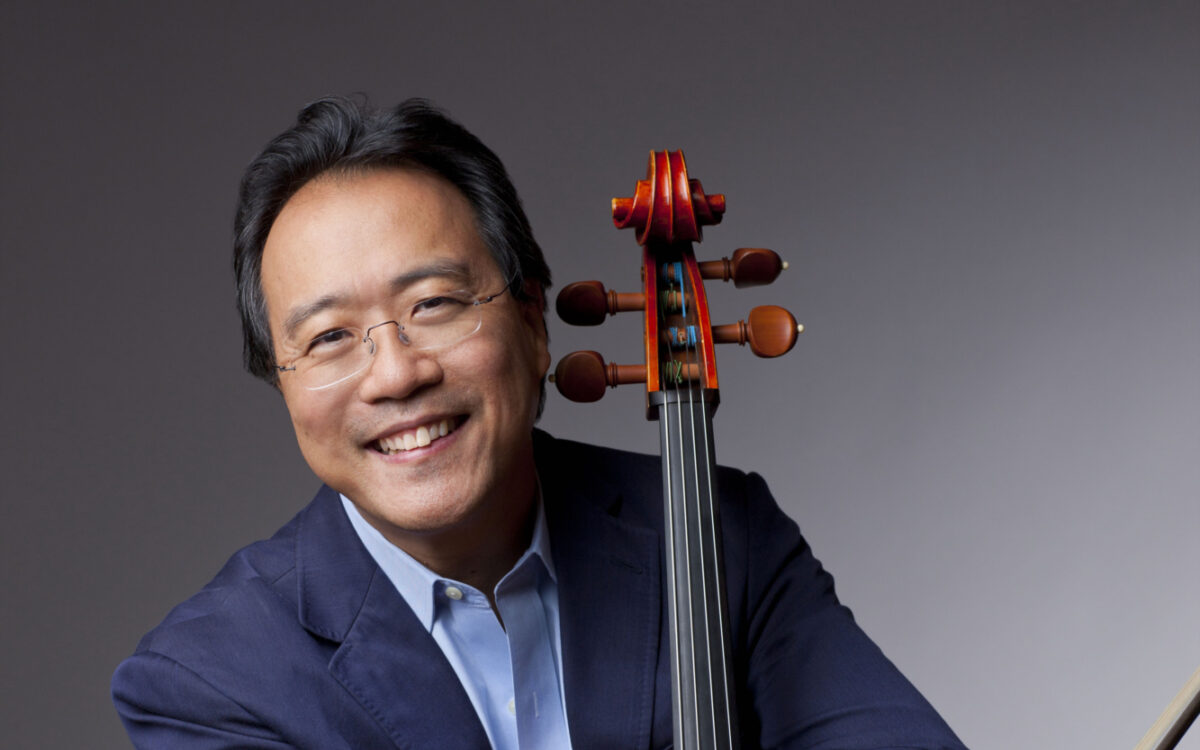Zhiân
Iman Habibi was born in Tehran, Iran, on September 10, 1985, immigrated to Canada in 2003, and currently lives in Toronto. Iman Habibi wrote Zhiân on commission from the Boston Symphony Orchestra, Andris Nelsons, Music Director, through the generous support of the New Works Fund established by the Massachusetts Cultural Council, a state agency. He completed the piece in 2023. Andris Nelsons and the BSO gave the world premiere at Tanglewood on July 9, 2023.
The score of Zhiân calls for piccolo, 2 flutes, 2 oboes, English horn, 2 clarinets, bass clarinet, 2 bassoons, contrabassoon, 4 horns, 3 trumpets (in E-flat, C, and B-flat), 2 trombones, bass trombone, tuba, timpani, percussion (3 players: cymbals, suspended cymbals, tam tam, whip, brake drum, snare drum, bass drum), harp, and strings (first and second violins, violas, cellos, and double basses). The piece is about 13 minutes long.
The Boston Symphony Orchestra and Andris Nelsons performed Iman Habibi’s Jeder Baum spricht (“Every Tree Speaks”) during the orchestra’s online season of 2020-21. Nelsons and the orchestra repeated the piece that summer at Tanglewood when the BSO resumed in-person performances. Around that time, Habibi was offered a commission for the work that would become Zhiân, but another high-profile commission, from the Azrieli Foundation, took precedent, leading to his Shāhīn–nāmeh for traditional Persian vocalist and orchestra. Shāhīn–nāmeh was premiered in October 2022 by vocalist Sepideh Raissadat with Orchestre Métropolitain in Montréal, Alexandre Bloch conducting. Zhiân was part of a two-year, very busy period of concentration mostly on orchestral music. Habibi’s upcoming plans include a violin concerto for Nikki Chooi, whom the composer met in Hamilton, Ontario, and who heartily accepted the offer of a new piece. Otherwise, he has a backlog of chamber-music commissions, including those for solo piano, piano trio (violin, cello, and piano), and saxophone and piano for Timothy McAllister, as well as performances and a recording project with his piano duo, Piano Pinnacle, with his wife Deborah Grimmett.
Iman Habibi was born in Tehran, Iran, during the Iran-Iraq War; his father is a chemical engineer and his mother, who had studied in England before the Iranian revolution, is an English teacher and translator. His mother, unusually, bought a 40-key electronic keyboard, having long harbored a desire to learn piano. It was on this instrument that Habibi improvised incessantly as child, learning by ear themes from television shows and other music. Eventually his parents took the hint, arranged for lessons, and acquired a real piano despite difficult financial, and political, circumstances. He was nearly expelled from school when his teacher became aware of his piano lessons, and was required to sign a contract agreeing to quit. (His parents arranged that they be continued in secret.) His earliest compositions were modeled on Romantic composers he studied as a pianist.
Many of the family’s friends and acquaintances had begun to leave Iran by the time the family decided to try to move to Canada. Since they were denied direct passage, they spent an uncertain few months in Türkiye before finally resettling in summer 2003, just in time for Iman to try to enroll in college. It was already summer and most colleges wouldn’t accept new enrollees; he ultimately found Douglas College, in a Vancouver suburb. Although Habibi’s parents still hoped he would enroll in a practical engineering program, he was committed to studying music, concentrating on piano performance. After two years he transferred to the University of British Columbia, where he earned his bachelor’s and master’s degrees. He went on to earn his doctoral degree at the University of Michigan.
Despite being unsure of many of the standard conventions of music notation, while at the University of British Columbia he wrote a choral piece, Erroneous Kudos, that took second prize in a national contest. That experience encouraged him to focus on composing. Also, in working with a text about the futility of war, he realized he’d begun to find his own voice—one that combined an explicit social message with his own musical ideas. This approach carried over into his instrumental music, as works like Jeder Baum spricht and Zhiân demonstrate. His violin/piano duo Offering of Water is in the same vein. Composed for BSO violinist Lucia Lin and premiered at the Tanglewood Prelude Concert on Friday, July 7, Offering of Water is based on a Zoroastrian prayer, which Habibi uses as a way of focusing attention on crises created by water mismanagement in Iran and throughout the world. For Habibi, climate change activism is closely tied to positive social change: if a people is displaced or starving, or is otherwise placed in danger due to drought, floods, and other catastrophic events, the world can never arrive at peace and an equitable society.
Offering of Water came about in part through the Gabriela Lena Frank Creative Academy of Music, which was a co-commissioner of the piece and of which Habibi was a Fellow. The academy was also a co-commissioner of his violin and cello piece Âhūye Kūhī, also written for Lin for her project In Tandem, which paired Lin with musicians whose livelihood was disrupted by COVID-related cancellations. It was the GLFCAM association, too, that led to the Philadelphia Orchestra’s commissioning of Jeder Baum spricht, which the orchestra and Yannick Nézet-Séguin performed in Philadelphia and at Carnegie Hall. Habibi is now one of the academy’s mentors. Other commissions have included those from the Toronto Symphony Orchestra for A Drastic Irony (2022), the Vancouver Philharmonic Orchestra for The Promised Hand (2015), and the Orchestra of St. Luke’s, among many others; his large catalog encompasses orchestral, choral, solo vocal, and chamber music, as well as opera scenes and film music.
Zhiân is a name: it’s the Persian equivalent, as Habibi writes in his own program note below, of Mahsa Amini, the 22-year-old Iranian woman whose death in the custody of Iranian authorities led to widespread street protests and their violent suppression. Although a single movement, each section within the piece, the composer relates, is associated for him with individuals who died because of the Irani government’s brutal policies. One such person, whose name translates to “The Light of God,” opened the door for a musical depiction of hope, countering the tragedy of his end.
Much of Habibi’s orchestral writing revels in lush, fluid textures that develop and morph organically via gradual changes in timbre, tempo, and dynamics. Habibi is careful to maintain overall connectivity by basing even highly contrasting episodes on the same basic harmonic and motivic musical ideas. Sudden, unexpected shifts represent, for the composer, reality itself: the supposedly rare catastrophe that seems to happen daily and with little warning. The “hundred-year” storm now seems commonplace; patterns of violence spread like a virus (and viruses spread like a virus). Wrenching change is the new normal. But meanwhile one can find, and create, beauty.
Robert Kirzinger
Composer and writer Robert Kirzinger is the BSO’s Director of Program Publications.
Iman Habibi on his Zhiân for orchestra
2023 marks twenty years since I left my birth country of Iran to start a new life in North America. Still, I feel deeply connected to and pained by the struggles and suffering of my fellow Iranians. For decades, Iranains have been kept hostage, continually fighting to retrieve their most basic human rights, their freedom, justice, and their environmental and ecological health. Over the past several months, a new wave of protests (what has resembled a revolution) began following the death of Mahsa (Zhina or Jina) Amini, and several other young women. Inspired by Mahsa’s Kurdish name, Zhina, Woman, Life, Freedom (Zhen, Zhiân, Âzâdi), has become the main slogan of these protests, and the basic spoken rhythm of this slogan forms the main motivic element of this piece. The title, Zhiân, translates to “life” in Kurdish, and to “indignant” or “formidable” in Persian. The music carries us through darkness and light, but resolves in the end with a determination to continue striving towards a just, sustainable, and vibrant future.
In the months I spent writing this piece, I was surrounded by images and videos of Iranian protesters inside and outside of Iran, many of whom lost their loved ones, lost their own lives, or are currently imprisoned or on death row. This piece is my humble attempt to stand in solidarity with them, and I dedicate it to the brave people of Iran, in the hope of better days ahead.
Iman Habibi



